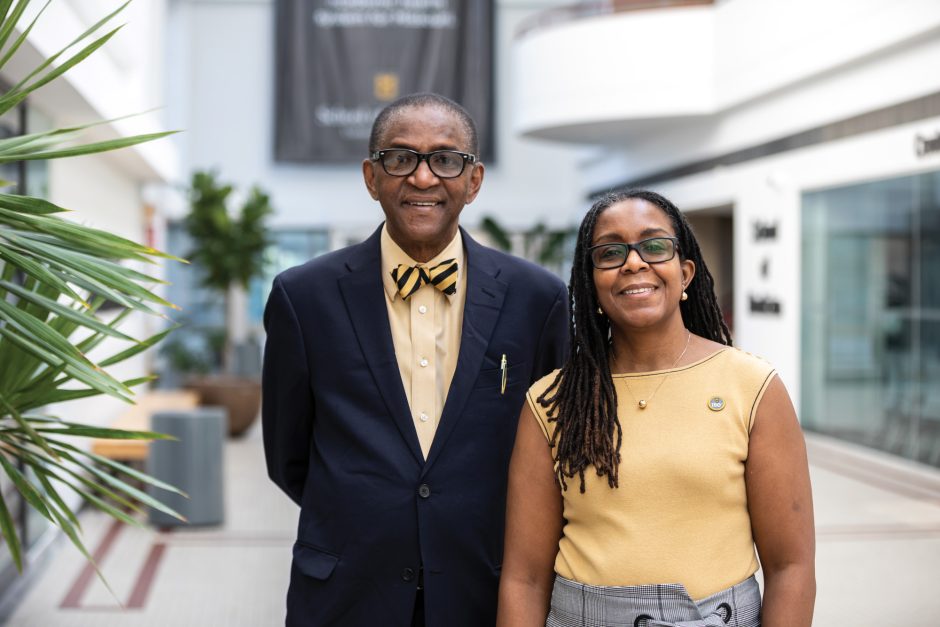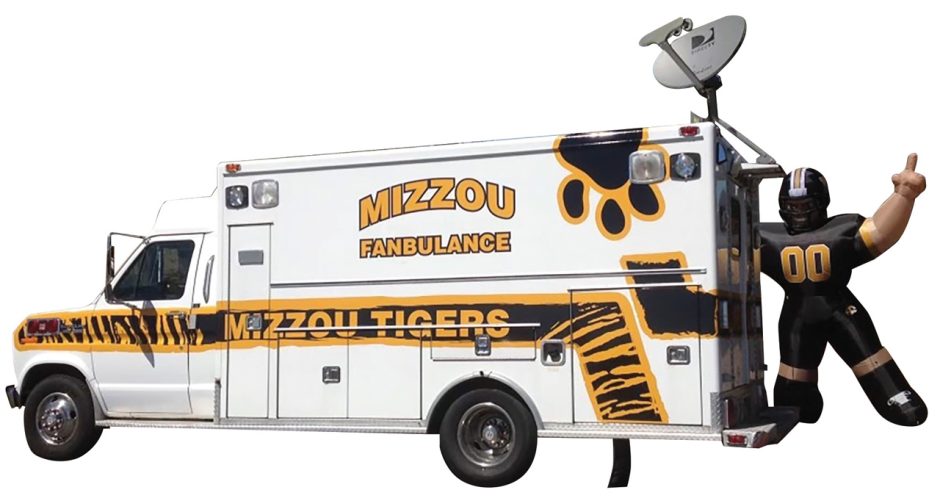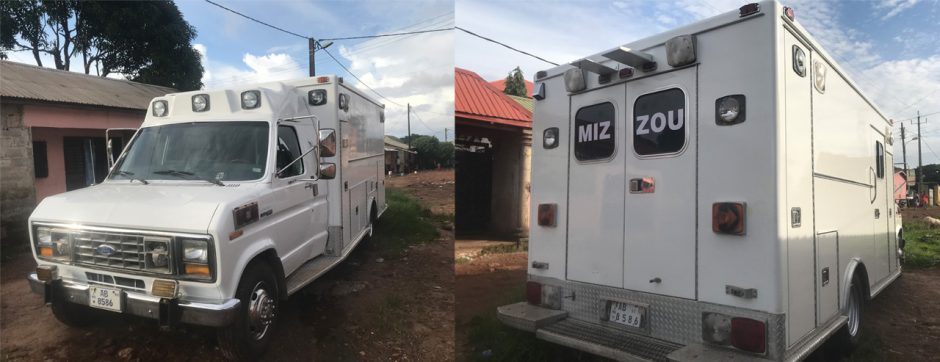
Published on Show Me Mizzou Sept. 4, 2023
Story by Kelsey Allen, BA, BJ ’10
If you tailgated in what is now the outfield of the MU softball team from 2009 to 2015, you might have seen the Mizzou Fanbulance, a decommissioned ambulance Jay Stewart bought off eBay from the city of Prophetstown, Illinois. The owner of Stewart Dental Laboratories in Columbia, Stewart transformed the ambulance into a mobile dental laboratory and drove it around to Missouri communities offering same-day crowns for about a year.
“It was not a good business plan,” he says with a laugh. It was, however, the perfect vehicle for tailgating. Stewart had it painted black and gold, outfitted it with a satellite dish and generators and often showed up on game day at 3:30 in the morning to secure a spot with a tree for shade and grass to stand in.
After eight seasons, Stewart retired the Fanbulance and parked it in his laboratory’s lot. That’s when Ablo Bah, MS ’87, PhD ’93 and his wife, Carolle Silney, BS ’91, MD ’97, came knocking. A family medicine doctor, Silney operates her practice out of a clinic in the same commercial development as the dental lab. The couple had seen the Fanbulance parked there for some time, and they had an idea: convert it into a mobile health clinic and ship it to Guinea.

“The country is at a standstill,” says Bah, who grew up in Guinea and returns with Silney every year to visit family and friends. “People are in need. When you are there, it is striking.”
One of the poorest nations in the world, Guinea’s health care spending averaged $43 per person in 2019 (The U.S. spent $11,582 per person the same year.), and the country is still recovering from the effects of the 2013–16 Ebola outbreak. Guinea has particularly worrying maternal and child health indicators: Between 2006 and 2012, an average of 724 mothers passed away per every 100,000 live births and almost 120 children under the age of 5 passed away per every 1,000 births.
Bah and Silney met at Mizzou as international students in 1988. Bah studied rural sociology and ended up working at Lincoln University in Jefferson City, Missouri, where he helped develop a computer-driven program to identify post-traumatic stress disorder, suicide prevention training and behavioral health screening tools used by the U.S. Army. Silney, who was born in Haiti, completed medical school and established her practice as a private physician.
“My wife and I have been extremely blessed,” Bah says. “We are in a position where we can do something to make a difference for some other people. Somebody did that for us.” Silney’s elementary school principal helped her secure a U.S. Agency for International Development scholarship to come study in the states. Bah’s mother was determined to help him succeed in school, and in Columbia, a local family welcomed him into their community. “We are people who have received. We are people who give back,” Silney says.
When Stewart learned that Bah and Silney wanted to buy the Fanbulance and turn it into a mobile health clinic, he donated the vehicle to the effort. The couple spent more than $7,000 to turn the ambulance into a functioning clinic — “MIZ-ZOU” is still emblazoned on the back windows — and another $8,000 to transport it to Guinea. Now, it’s parked in Guinea’s capital, Conakry. The goal is to staff the clinic with volunteer medical professionals and travel from community to community offering physicals and eye, ear and dental exams.
In May, the couple returned to Guinea to forge partnerships with the minister of health and the local community. Silney offered consultations and is encouraging her connections in the health care community to make medical mission trips to support the clinic as well. For Bah and Silney, the clinic isn’t a business — it’s a labor of love. “We are doing this on our own with our own resources,” Bah says. “Hopefully, our community will step up to help with this project.”

To read more articles like this, become a Mizzou Alumni Association member and receive MIZZOU magazine in your mailbox. Click here to join.



